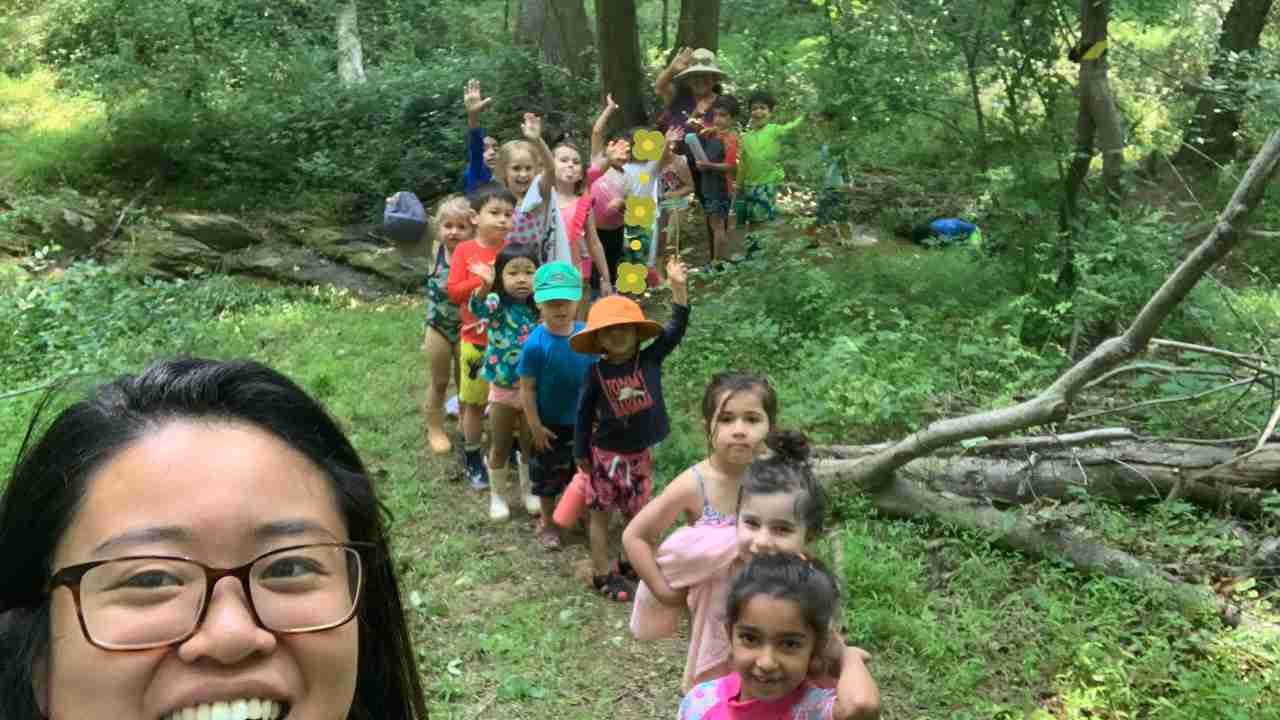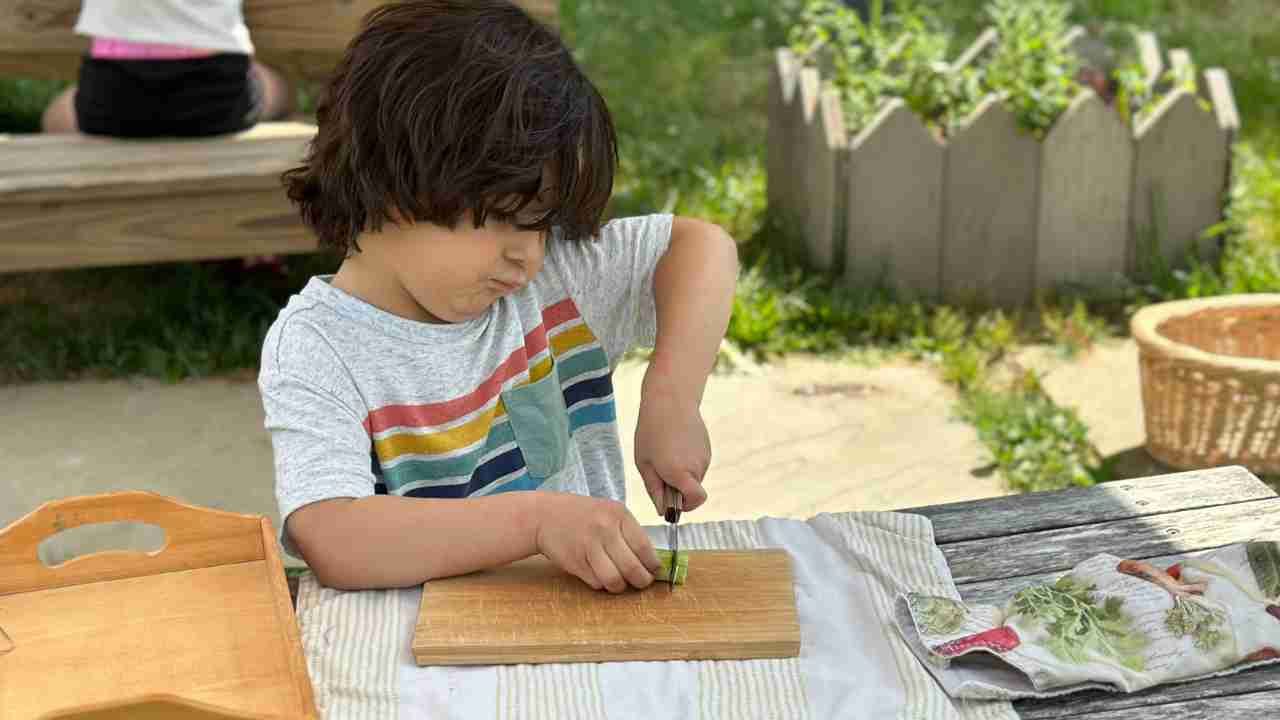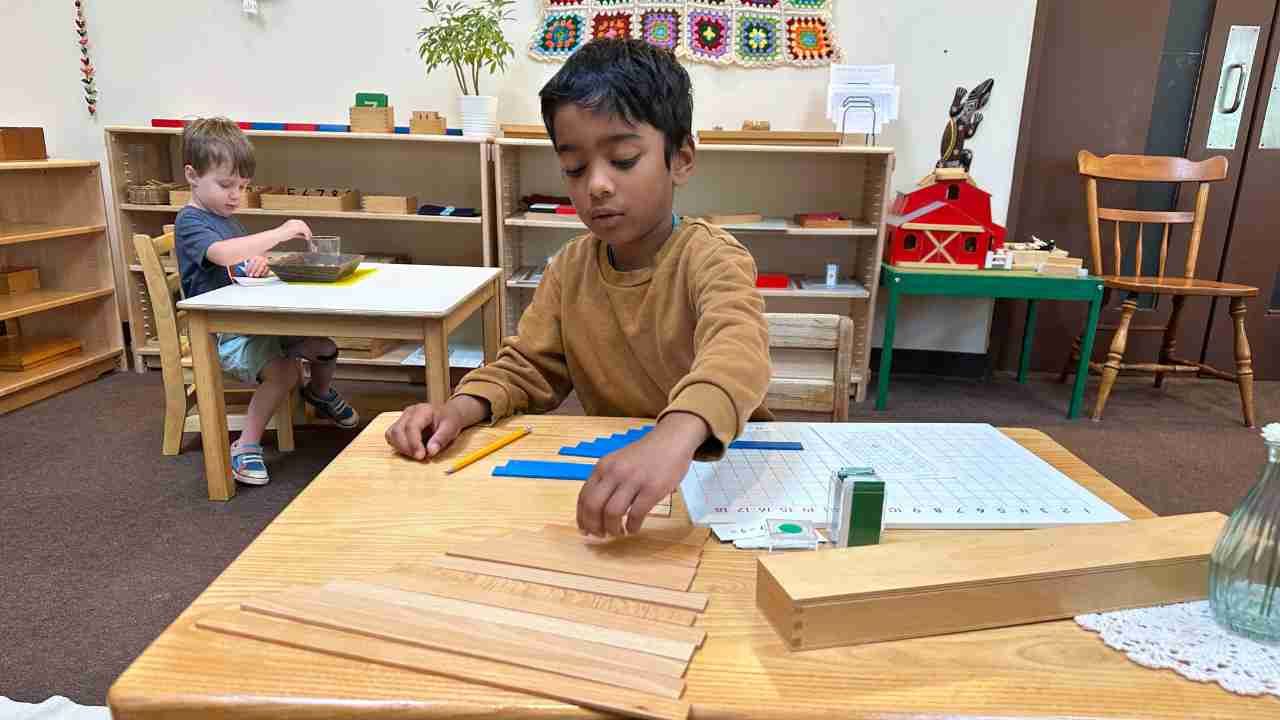Many parents come to our school looking for traditional "small class sizes" because they believe a small class size equals more personalized attention.
However, they are surprised when they observe our classrooms to see that a larger group of Montessori children functions much better than in a traditional environment.
Here children engage in individual or small group lessons with teachers. They choose their "work" (which never feels like work!) so they're passionate about their lessons and excited to learn every day.
Although Montessori classroom sizes vary between 17–26 students with an AMI-certified teacher and assistant, it never feels too large. In fact, parents are in awe of the peaceful and meaningful way students engage with each other and the lessons.
On an average day, you'll find a 6-year-old student helping a 3-year-old prepare snack. You'll find a child quietly sitting, absorbed in a math problem. Or you might see the teacher giving a lesson with a student on sandpaper letters (which helps them learn cursive and sounds) at the center table.
The day flows smoothly as children are excited to learn and treat each other with respect and kindness (part of the Montessori curriculum).
The Montessori approach is child-centered and based on the child’s stages of development.
In a Montessori classroom, children of different ages work independently and seek help from the teacher or other students as needed. Working in this manner facilitates peer-to-peer learning, which allows students to deepen their understanding of the material.





